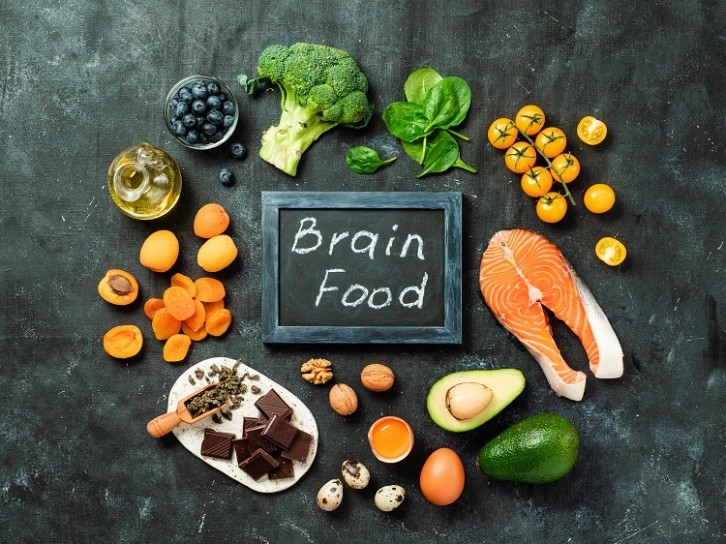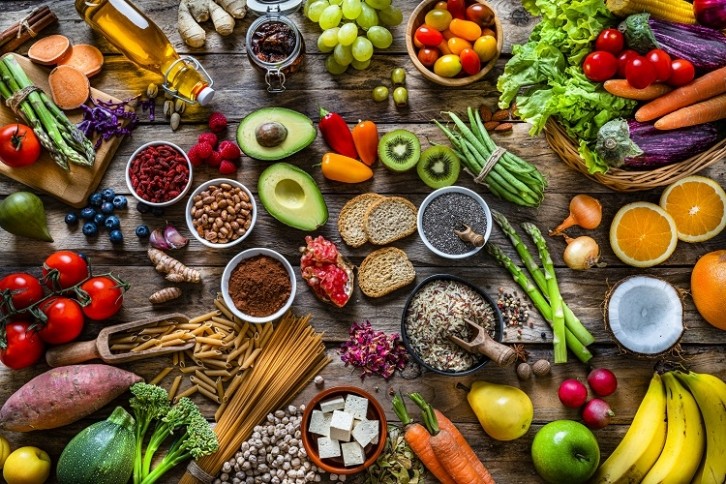Is fibre essential for brain health?

Fibre is widely acknowledged as an essential factor in a healthy diet, with fibre-rich foods such as pulses and vegetables lauded as one of the most effective ways to promote good gut health. But is it also crucial for healthy brain function?
Communications between the central and enteric nervous systems, more commonly referred to as the brain and the gut or collectively as the brain-gut axis, are believed to be improved when the gut is healthy and strong, highlighting the importance of the health of the gut microbiome in influencing these interactions.
Multiple studies have been published by scientists across the globe investigating the importance of a healthy gut on the brain. One such study, titled 'The gut-brain axis: interactions between enteric microbiota, central and enteric nervous systems', published on the National Institute of Health, found that the brain-gut axis reveals “a complex communication system that not only ensures the proper maintenance of gastrointestinal homeostasis, but is likely to have multiple effects on affect, motivation, and higher cognitive functions.” In short, the function of the brain is believed to be strengthened by a healthy gut and the messages it receives are believed to be sharpened. The brain is often described as the control room of the body, so this relationship is essential. So how can fibre help create a strong, healthy gut to support a strong, healthy brain?
What is fibre and why is it good for gut health?
Fibre is a type of carbohydrate found naturally in plant foods such as wholegrains, beans, nuts, fruits and vegetables. The body cannot break fibre down, meaning it passes through the stomach and into the large intestine, making it the perfect nutrient source for gut bacteria. Foods which provide nutrients to the gut’s microbiome are referred to as prebiotics and are defined as a non-digestible food ingredients that beneficially affect the host by selectively stimulating the growth and/or activity of one or a number of bacteria in the colon, thus improving health of the host.
How does fibre in the foods we eat affect the brain-gut axis?
There are various types of fibre and each one has a different affect on the body. Some influence how quickly food moves through the gut, some impact blood cholesterol and how quickly sugar from food and drinks is absorbed, and some can influence the diversity and volume of bacteria in the gut.
Consuming satisfactory quantities of fibre helps with weight management due to its slow-release energy, has been linked to a reduction in the risk of developing cardiovascular diseases, and more recently is understood to improve cognitive function. It has also been associated with aiding in the prevention and treatment of colorectal cancer.
There is heaps of evidence supporting the benefits of dietary fibre. It isn’t just associated with colon health, it’s associated with overall health and brain health through the gut-brain axis. By contrast, diets low in fibre have been associated with gastrointestinal disorders such as irritable bowel syndrome or inflammatory bowel disease.
There is growing research, showing that microbes in the gut, which make up the microbiome, are fundamental to good health. Fibre found in foods such as oats, pulses, fruits and vegetables provide nutrients for microbes, allowing them to thrive and creating a healthy microbiome. These microbes then help digest foods for us so we can obtain more nutrients, promote gut barrier integrity, and prevent the growth of harmful bacteria.
What is the gut microbiome?
Each of us has trillions of microbes or bacteria living in our gut. These are collectively referred to as the microbiome. The two most common species of helpful bacteria found in our gut microbiome are Lactobacillus and Bifidobacteria. Maintaining a healthy balance between the helpful (good) bacteria and the unhelpful (bad) bacteria is fundamental in supporting a healthy digestive system, with the gut now understood to be central to health, containing more than 70% of our immune system.
The European Food Safety Authority (EFSA) recommends that adults consume 30-35 grams of fibre a day. Recommendations for children vary based on the energy requirements of different age groups, although it’s approximately two grams of dietary fibre per 240 kilocalories consumed.
Fibres can also have microbe-independent effects on our immune system when they interact directly with receptors expressed by our cells. These beneficial effects may even help teach the immune system to be more tolerant and reduce inflammation.
The charity, Guts UK, which funds research into the digestive system, explains, “We know that having a good intake of fibre benefits the gut microbiome by increasing the amounts of beneficial species such as lactobacillus and bifidobacteria. Our microbiome is part of us, and we are still learning about the implications of changes to the microbiome in many diseases. It appears that we have a ‘gut garden’ as part of our personal ecosystem, and it makes absolute sense to feed it well.”
How can we get more fibre into our diet?
Dietary fibre is an essential part of a healthy diet, promoting gut health and overall health. However, according to The European Food Information Council (EUFIC), most European adults fall short of the recommended fibre intake, with averages ranging from 18-24 grams per day for males and 16-20 grams per day for females. So how can we get more fibre into our diet?
Kathy La Macchia of the Grains & Legumes Nutrition Council champions beans as one option for incorporating fibre-rich foods into your diet, telling FoodNavigator, “beans may be small, but they are nutritional powerhouses that benefit overall health. They provide an excellent source of plant-based protein, dietary fibre and micronutrients like iron, magnesium, B vitamins, and folate, which are important for immunity, brain function and energy. Regular bean consumption can improve the gut microbiome, promote mental well-being and reduce the risk of chronic diseases, including cardiovascular disease, type 2 diabetes mellitus and certain cancers. Beans are cost-effective for consumers, have a long shelf life and require half the amount of water to grow compared to chicken and pork, making them an accessible and sustainable choice.”
The National Health Service (NHS) in the UK says “it's important to get fibre from a variety of sources, as eating too much of one type of food may not provide you with a healthy balanced diet.” The myriad of foods rich in fibre, recommended by the NHS, include porridge oats, potatoes with their skins on, wholemeal or granary bread, wholewheat pasta, bulgur wheat or brown rice, pulses, plenty of vegetables and fresh or dried fruit. Simply put, there are plenty of options available so take your pick.
Get advice on how you can make healthier choices, and get more fibre into your diet, at FoodNavigator's upcoming Positive Nutrition event 12-14 March 2024.



























